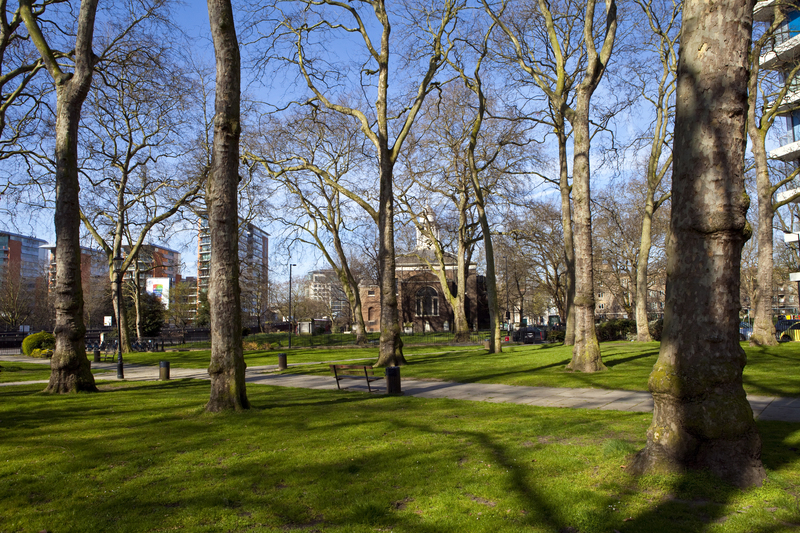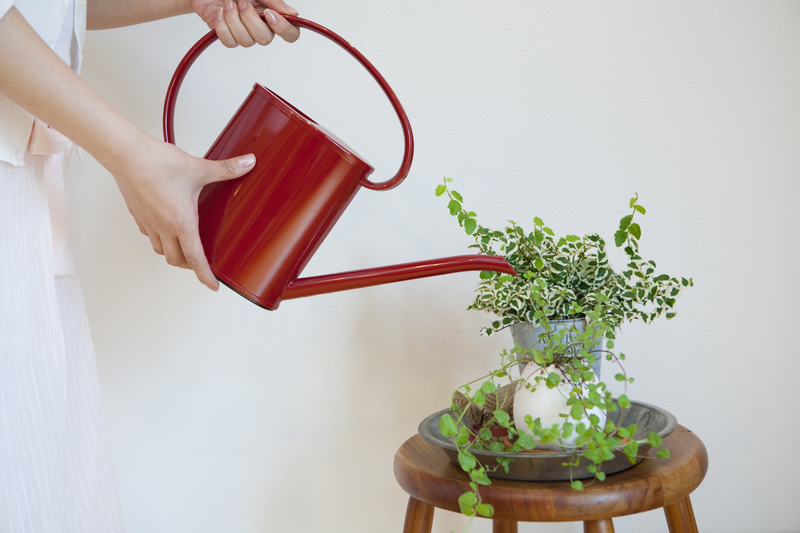Cultivate your skills with 9 essential gardening tips for starters
Posted on 01/07/2025
Cultivate Your Skills with 9 Essential Gardening Tips for Starters
Embarking on your gardening journey can be both exciting and overwhelming. Whether you're yearning to enjoy fresh homegrown vegetables, create a vibrant oasis of blooms, or simply reconnect with nature, mastering the basics is key to your success. This comprehensive guide presents nine essential gardening tips for beginners that will help you build confidence, overcome common pitfalls, and nurture a thriving garden from the ground up.
Why Start Gardening?
Starting a garden comes with a wealth of benefits beyond beautiful scenery. Gardening promotes physical activity, relieves stress, encourages healthy eating, and connects you with the rhythms of nature. From watching seeds sprout to harvesting bounty, every stage brings its own satisfaction. But how do you ensure your efforts blossom into results? By embracing a few time-tested techniques for novice gardeners, you pave the way for healthy, resilient plants and rewarding growth--both for your garden and yourself.

1. Assess Your Garden Site
Understanding Your Garden's Environment
Before sowing your first seed, observe your space:
- Sunlight: Most vegetables, herbs, and flowers thrive with at least 6 hours of direct sun. Track how sunlight moves across your yard throughout the day and across seasons.
- Soil: Test your soil's texture, drainage, and fertility. Squeeze a handful--does it crumble or clump? Healthy soil forms the foundation for every thriving plant.
- Water access: Is your garden near a hose or water source? Consistent moisture is crucial for seedlings and mature plants alike.
- Shelter: Consider wind exposure and nearby shade sources like trees or buildings.
Choosing the right spot boosts your plants' chances of success and reduces potential struggles for new gardeners.
2. Start Small and Simple
The Key to a Manageable Garden
Beginners often bite off more than they can chew. Instead, create a modest garden layout to match your available time and energy. Raised beds, small in-ground plots, or even a collection of pots can provide ample opportunity for learning and harvest--without becoming overwhelming. As you gain experience, your garden can grow along with your skills!
3. Choose Easy-to-Grow Plants
Best Beginner Plants for a Thriving Start
Not all plants demand the same level of care. New gardeners should select low-maintenance, resilient varieties that are known to thrive in your local climate. Some classic starter choices include:
- Vegetables: Lettuce, radishes, bush beans, and cherry tomatoes
- Herbs: Basil, chives, mint (limited to pots), and parsley
- Flowers: Marigolds, sunflowers, zinnias, and nasturtiums
Visit local nurseries or reach out to gardening clubs for regional recommendations. Starting with beginner-friendly plants will ensure rapid, rewarding results.
4. Invest in Quality Soil
The Foundation of All Great Gardens
Your plants' health starts underground. Soil rich in organic matter offers the nutrients, structure, and moisture retention plants need to flourish. For most beginnings, blend in compost or well-rotted manure with your native soil or use a premium potting mix for containers. Don't ignore your soil! It's one of the most important gardening tips for new gardeners looking to create a thriving landscape.
5. Water Wisely
Smart Watering Techniques for Novice Gardeners
Overwatering and underwatering are common mistakes for those new to gardening. Develop these watering habits:
- Water deeply and less frequently to encourage strong root growth.
- Morning waterings reduce evaporation and help prevent disease.
- Use mulch to retain soil moisture and regulate temperature.
- Check the soil before watering--if it feels damp an inch below the surface, wait before watering again.
With practice, you'll learn your particular plants' needs in different weather conditions.
6. Learn to Mulch
Mulching: The Beginner's Secret Weapon
Adding a layer of mulch--such as shredded leaves, wood chips, or straw--around your plants has countless benefits:
- Reduces weeds (saving you time and effort!)
- Locks in soil moisture
- Prevents mud splashing onto plants
- Maintains even temperatures around roots
Apply mulch after your seedlings are established--and be careful not to pile it against plant stems, as this can encourage rot.
7. Feed Your Plants
Simple Fertilizing for Starter Gardens
Plants draw nutrients from the soil, which can become depleted over time. Especially as a beginner, opting for slow-release or organic fertilizers will help you maintain balanced nutrition and avoid "burning" tender roots. Follow label instructions and do not overfertilize. For container gardens, look for plant food specifically designed for pots.
8. Observe and Identify Pests Early
Protecting Your Garden from Unwanted Visitors
Vigilance is vital! Visit your garden daily to:
- Check for holes in leaves, wilting, or discoloration
- Spot early signs of pests (like aphids, slugs, or caterpillars)
- Notice beneficial insects (ladybugs, bees) and encourage their presence
Early intervention is the key to preventing infestations. Prioritize eco-friendly pest control methods such as handpicking, introducing helpful bugs, or using neem oil sprays. Learning to distinguish between harmful and beneficial insects is an invaluable gardening skill for beginners.
9. Keep a Garden Journal
Track Your Progress and Successes
Document your gardening journey with notes and photos: record planting dates, weather patterns, successes, and setbacks. Over time, your journal will become an invaluable resource for troubleshooting and repeating your best-performing methods. Keeping track of your efforts is one of the most overlooked yet powerful tips for beginner gardeners.
Bonus Tip: Join a Gardening Community
Connecting with neighbors, online groups, or local gardening clubs is a fantastic way to share knowledge, swap seeds, and get personalized advice. Learning from others' experiences will build your gardening skills and confidence quickly.

Cultivate Patience and Celebrate Growth
Above all, remember that gardening is a journey--one that's as much about learning and discovery as it is about harvests and blossoms. Mistakes and setbacks are part of developing your green thumb. Take time to appreciate each new sprout, bloom, or fruit, and enjoy the calming, rewarding rhythm of tending your garden.
Conclusion: Start Cultivating Your Gardening Skills Today
Cultivating your skills with these nine essential gardening tips for beginners will set you on the path to a flourishing, beautiful home garden. From understanding your site to journaling your journey, every step brings you closer to sustainable success--and the joys of your own lush oasis.
- Assess your garden site thoroughly
- Start small for the most manageable experience
- Pick resilient, beginner-friendly plants
- Prioritize nourishing, living soil
- Water deeply and wisely
- Embrace the power of mulch
- Feed plants as needed, especially in containers
- Observe daily for pests and problems
- Document, reflect, and celebrate your growth!
With patience, practice, and these tried-and-true starter gardening tips, you'll cultivate lush spaces and gardening know-how for many seasons to come. Begin your gardening adventure today!
Latest Posts
Revitalizing Earth's Bounty with Organic Waste
Nurturing Nature's Playground: Building a Kid-friendly Garden
Unleash the joy of gardening by creating your own herb paradise

